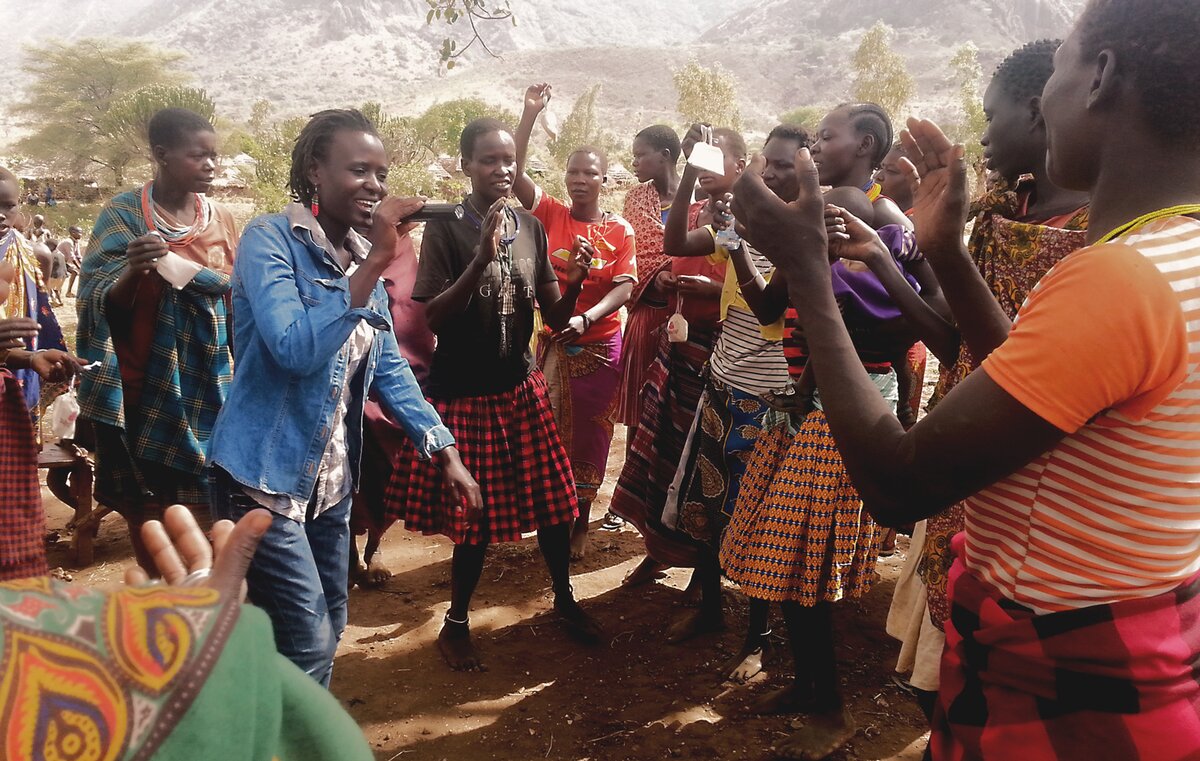Uganda menstrual cup project tests novel distribution models and leverages additional funds
14th June 2017

Lady Comfort, a local artist, performing the Menstrual Cups song as part of a sensitization/social marketing event
More than 700 young women have, to date, registered to do community distribution work in return for a menstrual cup – and a goat. This deal is just one innovative menstrual cup distribution model being tested by Innovation Fund-recipient Womena.
In its first quarter, Womena has already managed to leverage:
- An additional EUR 2632 from NGO Viva con Aqua for menstrual health-related activities carried out by German NGO Welthungerhilfe (WHH)
- Professional pro-bono advertising and design services from marketing firm Sajeki, and
- a donation of 1,164 menstrual cups from Ruby Life Ltd
A bell-shaped, reusable cup made of medical grade silicone or a similar material, the menstrual cup offers ecologically sound menstrual hygiene management in developing countries with limited access to affordable sanitary products. The Innovation Fund project has tested the following novel, women-centred distribution models:
- “Goat-for-Work” model, which allows young women to register for a community work assignment with WHH in exchange for a goat and menstrual cup. More than 700 have registered to participate in the WFF “Goat-for-Work” scheme.
- “Marie Stopes (MS) Ladies” model: a group of 25 nurses and midwives pay for stock upfront and could gain up to a 60 per cent profit on menstrual cups they sell on to the community. MS Ladies use various avenues to engage communities, including working with Village Health Teams to sensitise community members to the menstrual cups.
- “Marie Stopes Uganda (MSU) clinics” model: at these 5 MSU clinics, which target higher- income clients, menstrual cup counselling is integrated into other RH services.
- Menstrual cup sales in pharmacies: four Kampala-based pharmacies sell menstrual cups at full market price. Staff receive sales and work with a marketing campaign to boost demand.

Left: Marie Stopes Lady Asumpta showing how she demonstrates inserting the menstrual cup | Right: Refresher training for MS Clinic staff in Gulu, Northern Uganda
Sixty-five promoters, community mobilizers and partner staff have been trained to date to sell menstrual cups in seven different locations in Uganda. Results for each model are currently being collated and will feed into a larger strategy for marketing methods. For more information, please contact Laura Hytti at hyttilaura@gmail.com.
Category: